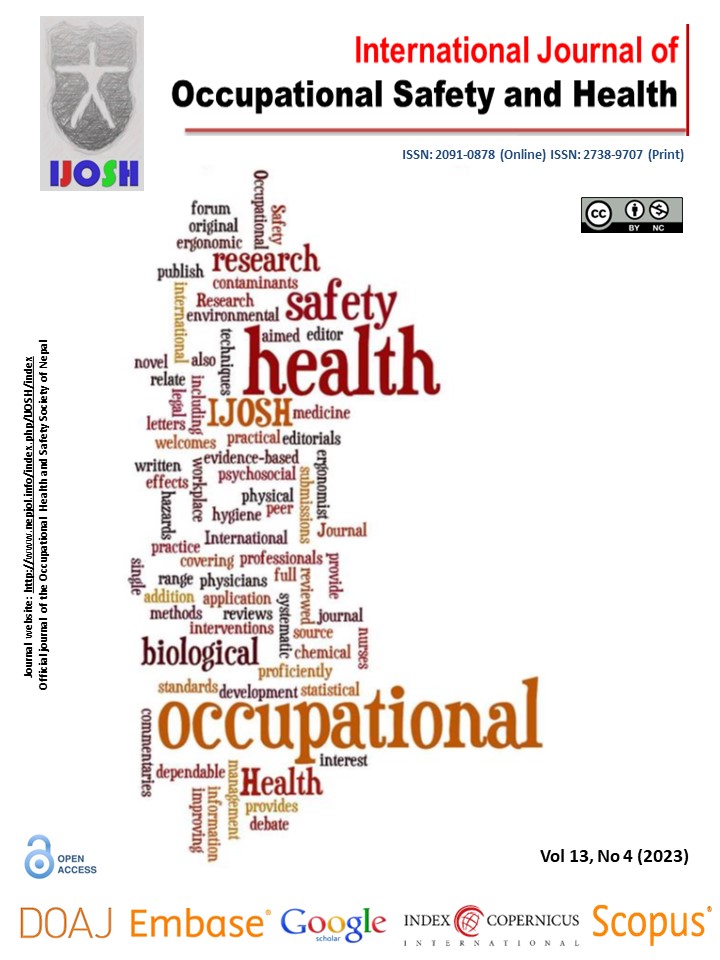Nurses’ Workload and Quality of Life in General Hospitals: The Mediating Role of Resilience
DOI:
https://doi.org/10.3126/ijosh.v13i4.55772Keywords:
Nurses, Workload, Quality of life, ResilienceAbstract
Introduction: An increased nurse's workload might break the balance between work and life, reducing nurses' quality of life. This condition can lead to physical, mental, and emotional exhaustion. Nurses with low resilience may develop psychological issues or mental illness. This study aims to determine the relationship between workload, resilience, and quality of life of nurses.
Methods: A cross-sectional study with proportionate stratified random sampling was implemented in nurses working at type B hospitals in West Nusa Tenggara, Indonesia. A total of 265 nurses were enrolled in this study during September-October 2022. The National Aeronautics and Space Administration Task Load Index (NASA-TLX), The Russel & Russel questionnaire, and the WHOQOL-Brief quality of life were used on this research instrument. The Partial Least Square-Structural Equation Model (PLS-SEM) was used to investigate the effect of mediating resilience on the link between workload and quality of life in nurses.
Results: The study's findings indicate that workload (X) and resilience (M) affect quality of life (Y) (53.1%). Nurses’ workload affects the quality of life via resilience (Path coefficient = -0.049, p = 0.041). It can be interpreted that nurses’ workload has a negative and substantial link with the quality of life due to resilience.
Conclusion: This study concludes that resilience mediates the relationship between nurses’ workload and quality of life.
Downloads
Downloads
Published
How to Cite
Issue
Section
License
Copyright (c) 2023 Dadang Priyanggono, Kuswantoro Rusca Putra, Tita Hariyanti

This work is licensed under a Creative Commons Attribution-NonCommercial 4.0 International License.
This license enables reusers to distribute, remix, adapt, and build upon the material in any medium or format for noncommercial purposes only, and only so long as attribution is given to the creator.





